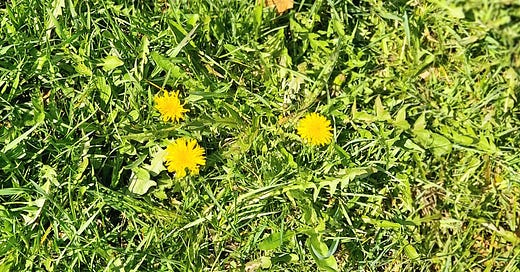DANDELION - THE "WEED" THAT IS FOOD AND MEDICINE
“In some Native languages the term for plants translates to “those who take care of us.” ~ Robin Wall Kimmerer, Braiding Sweetgrass
Dandelion (Taraxacum officinale) is most likely the plant that represents what is wrong with our world. It is because the plant with so many benefits is considered a weed and is killed by toxic herbicides that contaminate the soil. The plant is native to North America, Europe, and Asia, and its medicinal properties have been explored for thousands of ye…
Keep reading with a 7-day free trial
Subscribe to genuineprospect to keep reading this post and get 7 days of free access to the full post archives.



